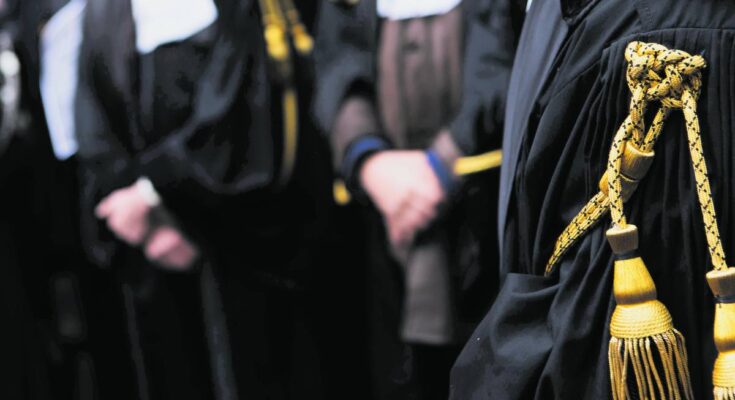Career separation is not an idea shared by the right, but rather a principle that has historically held the right to citizenship across all political stripes. This is the most obvious fact that emerges when observing the plurality of committees, movements, associations and figures who in recent months have chosen to side with a Yes vote in the referendum. A front that unites different political histories and cultures, with the aim of making the justice system more balanced and transparent.
The “Sì Separa” committee, promoted by the Einaudi Foundation, led by Gian Domenico Caiazza and Giuseppe Benedetto and animated by figures such as Antonio Di Pietro, Luigi Bobbio, Alessandro Barbano, Ernesto Galli della Loggia, Pierluigi Battista, Tiziana Maiolo, Claudio Velardi, Andrea Cangini and Raffaele Della Valle is only the first part of a now much larger mosaic. A transversal group, which brings together collateral, radical and reformist stories. And it is precisely this heterogeneity that shows how career separation has become an institutional necessity that goes beyond the typical left-right opposition.
Simultaneously with the Einaudi committee, the “Giuliano Vassalli” committee also developed, which explicitly recalled socialist culture. Here they met former senator Enrico Buemi, professor and former guarantor of prisoners Mauro Palma. Then Claudio Signorile, Salvo Andò, Fabrizio Cicchitto, Mauro Del Bue, Ugo Finetti, Giampaolo Sodano, as well as Stefania Craxi and her brother, Bobo Craxi.
And then the Pannella-Sciascia-Tortora Committee chaired by Professor Giorgio Spangher, clearly of Radical origin, had been joined by hundreds of lawyers such as Valerio Spigarelli, former president of the Union of Criminal Chambers, and Annamaria Bernardini de Pace, full professor of Oreste Dominioni Criminal Procedure. In the South, the “Citizens for Yes” committee promoted by Francesca Scopelliti (pictured), a former senator and associate of Enzo Tortora, was later consolidated.
On a cultural level, the YES group has also attracted attention with its distinct tone and nuance from legal scholars such as Sabino Cassese, Michele Ainis, Giovanni Guzzetta and a number of constitutionalists and lawyers who, although not directly on the committee, have underscored the importance of reviewing the relationship between prosecutors and judges.
The result was an unprecedented convergence: liberals, socialists, guarantors, reformers, former judges, intellectuals and local administrators formed a front
transverse and solid. The success of the referendum in consolidating this plurality will be determined by the voters. But the facts are clear: Ya doesn’t just have one color. It is the common ground where different worlds choose to discover each other.


